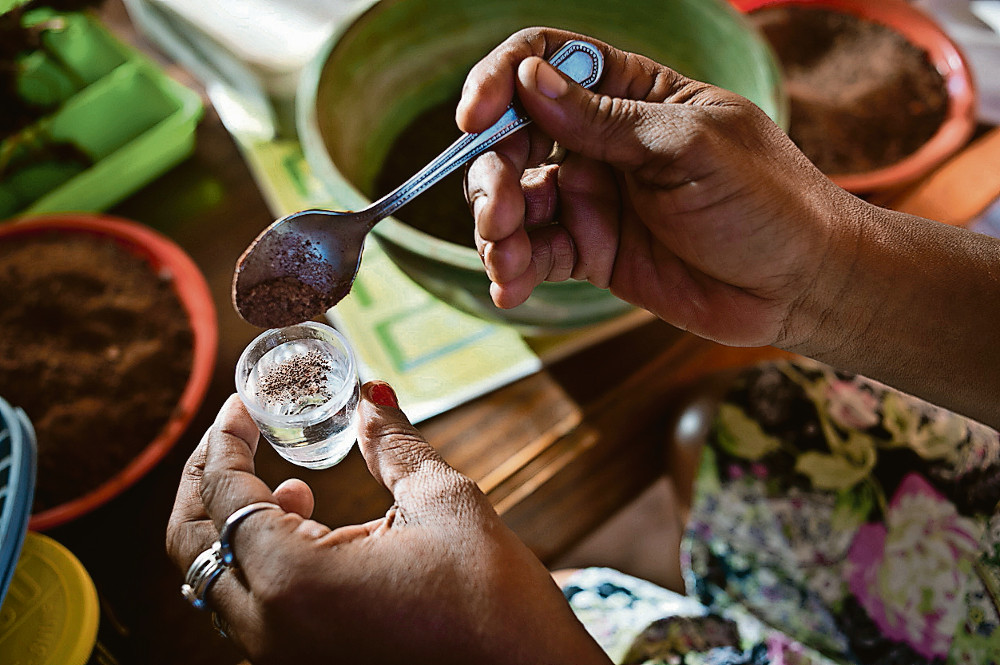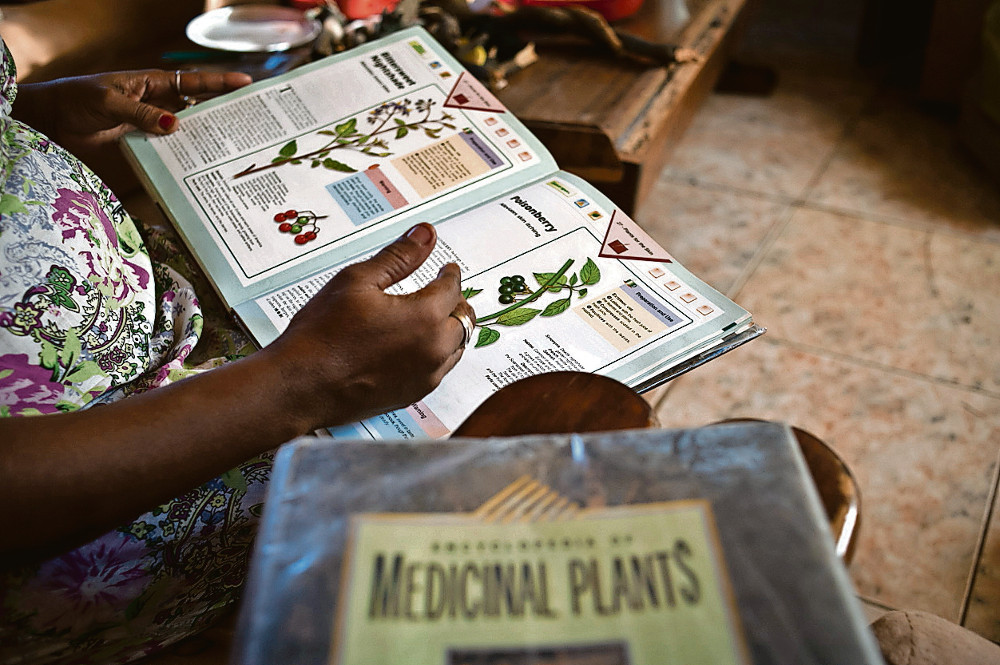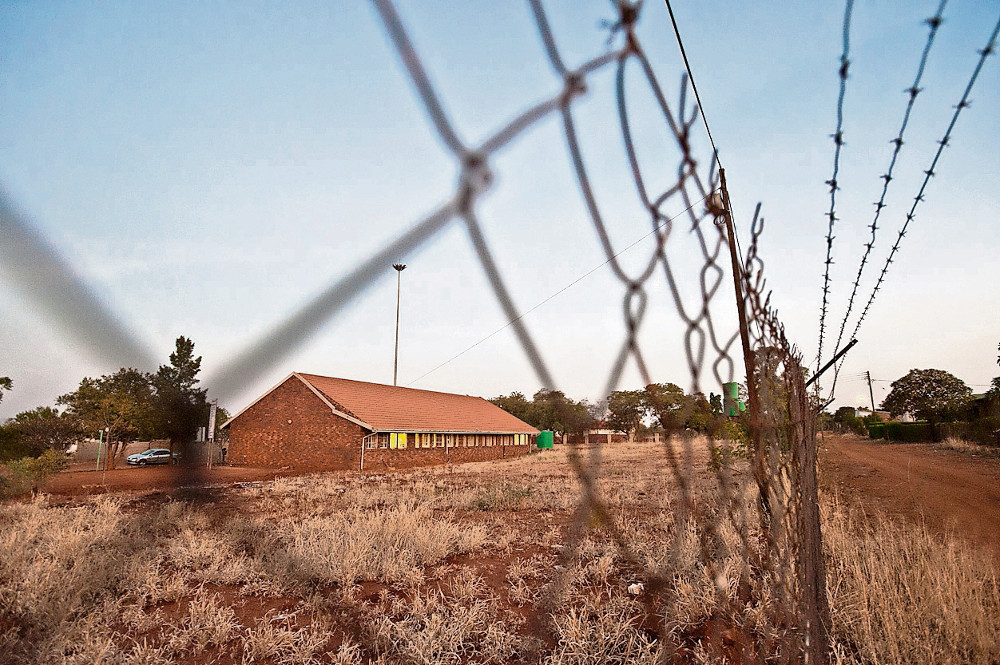Alternatives: Residents of Mabeskraal in the North West are reverting to traditional medicine
Once a month 73-year-old Masego Mmantlwa* makes the short walk to her local clinic in the rural North West village of Mabeskraal. She is never in a rush. The visit to the community health centre is a mere formality – she knows she will not get all the medicine prescribed to control her high blood pressure.
“I go there every month, but I can’t even remember the last time I got the right medication. They give me substitutes most of the time,” says Mmantlwa, sitting on a colourful couch in her neighbour’s home in Mabeskraal, 42km from Sun City.
Mmantlwa, who is on a combination of three medicines, says this situation has been going on since last year. She says she is frequently given different drug combinations and has suffered side effects from some of the replacement medication.
“There is nothing we can do, we just drink whatever is available,” she says. “They used to give me these brown tablets to substitute the Adalat I was taking and it made my legs swell up. So I said, ‘I better die than to drink these things.’ Some of the things they give you don’t work. They are useless.”
According to a Stop Stock Outs survey report compiled by a coalition of civil society organisations and released in June, “when patients have no access to first-line [drugs], they may either go without treatment, causing their disease to become uncontrolled, or they are given substitutes, which give rise to additional risks and side effects”.
First-line medication is the cheapest and most effective drug regimen for a particular condition with the least amount of side effects.
It’s the medication Mmantlwa is supposed to receive.
“Useless”
Mmantlwa and her neighbours call the clinic “terrible” and “pathetic”. Those who can afford to would rather travel 80km to Rustenburg for “proper” healthcare services.
“Once winter comes we go to the chemist and the supermarket and buy a flu pack because there [at the clinic] you can’t get them. You’ll never get a painkiller, you’ll never get Brufen [anti-inflammatory medication]. Nothing. It’s just a clinic by name,” Mmantlwa says.
Even cough mixture has not been available “because they say government hasn’t paid for the cough mixtures since the beginning of this year”.
“They tell us they don’t have any cold or flu medication and that we must use herbal remedies,” says Mmantlwa. “We have gone back to our roots. When winter comes, we take aloe and garlic and other herbs, we boil, we drink, so that we can live because the clinic’s got nothing.”
 Mabeskraal residents use home remedies because they want “to live”
Mabeskraal residents use home remedies because they want “to live”
A teacher at the local school told Bhekisisa that one of her pupils had been “hit by another one with a stone” and needed stitches above his eye.
But when she took him to the clinic they were told there was no local anaesthetic. “That lady [nurse] said to me, ‘There is nothing we can do.’ Even the injection just to numb that child wasn’t there. They just took that needle and stitched him,” according to the teacher.
Financial instability
At the beginning of the 2015-2016 financial year, the provincial treasury stepped in to co-manage the health department’s finances.
The Rural Health Advocacy Project’s Daygan Eagar says rural populations will bear the brunt of this intervention by the provincial treasury.
“One thing that is clear is there have been constraints put on the purchasing of things – equipment and maintenance of facilities and the hiring of staff. While they [the provincial health department] say there is not an official moratorium on it, the budget has meant that those sorts of things tend to be limited and cut back.”
Eagar says the effect of the department’s financial situation on drug shortages in the province is not yet clear. “The issue with the medication is a little more difficult because there have been problems nationally with supply chain [management]. So it’s difficult for us to separate what’s been a national problem with pharmaceutical companies with some of the drugs, and what is a result of the budget issues.
“These stock-outs have been happening around the country so it’s difficult to know when it’s a provincial issue and when it’s more widespread.
“But it remains a challenge particularly for things like antiretroviral [ARV] and tuberculosis [TB] drugs, antibiotics and basic medications for things like flu,” Eagar says.
The Stop Stock Outs report recorded shortages of TB medication and ARVs in public health facilities between 2013 and 2014. The report found that rural areas such as Mabeskraal are the hardest hit by the drug stock-outs.
Yet in various press releases Health Minister Aaron Motsoaledi denies such drug shortages. In June he said: “There is no shortage of ARVs.”
 Back to nature: Sick people are turning to medicinal plants because it has become difficult to obtain certain prescribed medication from many clinics
Back to nature: Sick people are turning to medicinal plants because it has become difficult to obtain certain prescribed medication from many clinics
Hard hit
The North West has experienced a near tenfold increase in ARV and TB drug stock-outs between 2013 and 2014 and has, second to Mpumalanga, the largest proportion of facilities reporting stock-outs. Bojanala district, where Mabeskraal is situated, is one of the seven districts most affected, with four out of 10 facilities reporting ARV or TB drug stock-outs.
Other essential medication, such as asthma pumps, was often out of stock in 43% of the facilities surveyed in the province.
In its response to the report, the North West health department argues that 12 of the 84 facilities surveyed don’t belong to the department; they belong to correctional services, the South African Military Health Services or nongovernmental organisations.
According to the department, the causes of the stock-outs involve factors such as “drug supply management challenges”, “transition from single-agent ARV drugs to the fixed- dose combination ARV”, “distribution challenges” and the “unavailability of stock from suppliers”.
Yet the report found that in most cases stock-outs are related to logistical problems between medical depots and health facilities rather than supplier issues.
Back in Mabeskraal, Mmantlwa and her neighbours have lost hope. “Relying on government healthcare services is a futile exercise. So we drink concoctions put together from the herbs in our back yards to fight the common cold or even treat symptoms of increased blood pressure,” Mmantlwa says.
“If you want to frustrate yourself, just go to the clinic.”
* Her name has been changed for fear of victimisation
 Troubled: Health centres in North West have been hit by the fluctuating delivery of medicines, including those for treating serious conditions such as high blood pressure
Troubled: Health centres in North West have been hit by the fluctuating delivery of medicines, including those for treating serious conditions such as high blood pressure
Provincial help doesn’t harm service – department
In a response to questions from Bhekisisa, North West health department spokesperson Tebogo Lekgethwane said: “At some point there was [a] shortage of certain items due to failure of suppliers to supply the department. This has been the challenge for the entire country. However, for the Mabeskraal Community Health Centre specifically, we established that the said items [flu and hypertension medication] were unavailable only for a week and they were since replaced.”
When asked what the department’s stance was on nurses recommending home remedies to treat flu symptoms, Lekgethwane said: “Home remedies to a large extent involve providing health education to patients on how they may prevent diseases at home [rather] than to wait to contract diseases and come to a health facility to receive treatment. Even in cases where a patient may already have minor illnesses like flu, home remedies, like advising patients to drink hot water, are still encouraged but this is not done at the expense of cure or medication.”
Lekgethwane disputed reports that his department is under the provincial treasury’s administration. He said it should be seen as co-management between the health and finance departments.
“The reason for this is simply because, over the years, precisely since the financial year 2000-2001, the department has been accumulating accruals … without any real growth of the departmental budget year on year, the end result has been that these accruals have increased to around R500-million.
“It is expected that the provincial treasury will continue to co-manage with the department only up until the end of the current financial year or at least to the point where there is a sense of containing the accruals.”
Lekgethwane said the co-management of finances “has no bearing on health service delivery or availability of medication”. – Ina Skosana
